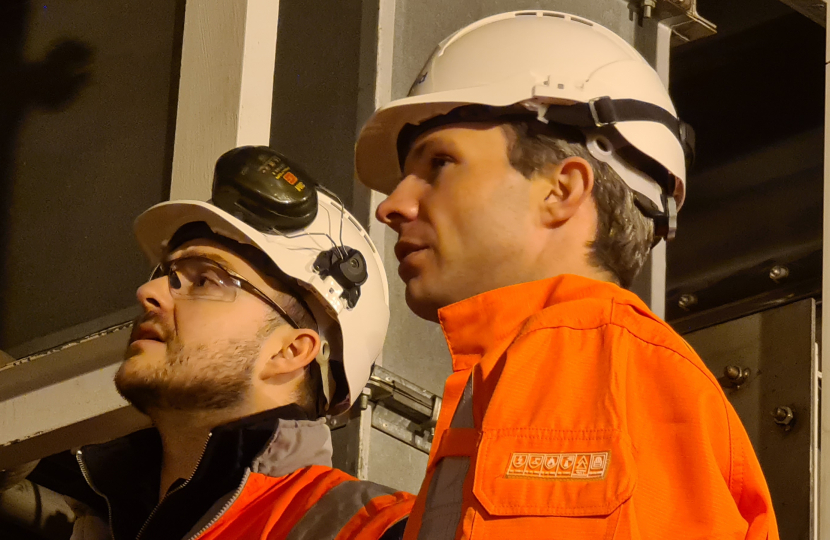
UK energy supplies are currently derived from a wide range of sources; these will further diversify as we progress towards net zero.
While the National Grid has highlighted that this winter will likely be challenging, it is encouraging that they have concluded that the UK's electricity supply will be adequate to see us through this period. I am aware that National Grid has plans in place to ensure the impact of external factors is minimised and the overall security and integrity of the UK's energy systems are protected.
I am proud of our record on green energy: the UK was the first G7 economy to legislate on net zero and the Ten Point Plan paves the way for a green industrial revolution. The Government's Net Zero Strategy outlines how our economy can be cleaner, greener and more innovative, and how we can build a secure, home-grown energy sector which ends our reliance on foreign gas.
In addition, the Government plans to deploy low carbon generation by 2035, including renewables, nuclear and new options such as hydrogen, and accelerating carbon capture technology to provide flexible gas power, using unabated gas only when needed for security of supply. This commitment to decarbonise the power sector by 2035, 15 years earlier than originally announced, ensures electricity will be generated in the UK, for the UK.
Further, the Government's programmes support the production and use of renewable energy infrastructure. The Energy Security Strategy sets out ambitions plans for how Britain will accelerate the deployment of wind, nuclear, solar and hydrogen power, while supporting the production of domestic oil and gas in the nearer term. Such moves will be central to weaning Britain off expensive fossil fuels and will boost our long-term energy independence, security and prosperity.
The Government is keen to meet a proportion of its ambitious target to produce up to 50GW from offshore wind by 2030 – more than enough to power every home in the UK – through floating installations, a brand-new technology whereby wind farms are built in deeper sea waters. Combined with support for UK manufacturers in government-backed renewables projects, these measures will help the industry to reach its target of 60 per cent of offshore wind farm production being generated at home.
A major review into Britain’s electricity market design is underway which seeks to radically enhance energy security and cut costs of electricity in the long term through the Review of Electricity Markets Arrangements. Proposals that were out for initial consultation included exploring changes to the wholesale electricity market that would stop volatile gas prices setting the price of electricity produced by much cheaper renewables. This consultation has now ended, but it explored ways of updating this pricing system to further reflect the rise in cheaper renewable electricity - something that could have a direct impact on reducing energy costs, ensuring consumers reap the full benefits of the UK’s world-leading and abundant supply of cheaper, cleaner energy. The Government is currently analysing the feedback and I look forward to reading the response.
While the transition is ongoing, we will need to increase the production of domestic oil and gas in the nearer term. Recognising the importance of these fuels to our energy security, and that producing gas in the UK has a lower carbon footprint than imported from abroad, an imminent licensing round for new North Sea oil and gas projects is expected to lead to over 100 new licences being awarded. Scaling up cheap renewables and new nuclear, while maximising North Sea production, is the best and only way to ensure our energy independence over the coming years.
There is an urgent need to safeguard and boost domestically produced energy and as such, the Government is launching the UK's new public body to oversee our energy network. The new Future System Operator will boost security and resilience of UK energy supplies and support transition to net zero emissions. As I understand it, the body will be launched once the Energy Security Bill is passed and further discussion has taken place with key parties.




